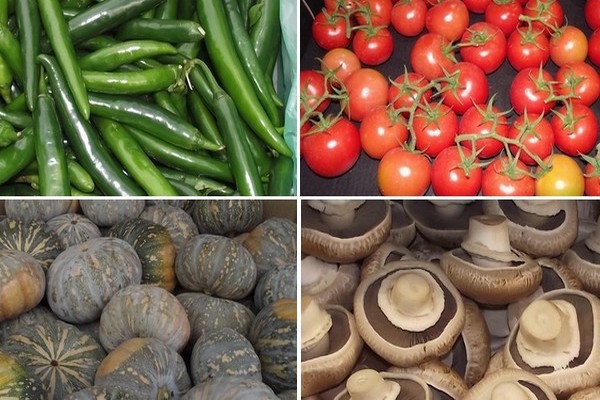Several horticultural commodities across Queensland are tipped to soar in value over the next 12 months, according to the state government.
Minister for Agricultural Industry Development and Fisheries and Minister for Rural Communities, Mark Furner says the value of Queensland's overall agricultural sector is projected to boom to a second-highest-ever valuation of $23.56 billion in 2024-25.
The valuation remains higher than the five-year average and the government says it showcases the resilience of Queensland agriculture, with a corresponding supply chain value estimated at $33.88 billion.
Among the produce, Macadamias led the top five highest-growing commodities in 2023-24, largely led by the Bundaberg region, which dominated the state's production of the "Queensland nut".

The information, compiled by QDAF on the DataFarm website showed that bananas are forecast to be up 2.9% to $563 million, avocados up 3% to $277m, processed fruit and vegetables up 0.5% to $274.66m, strawberries up 3.2% to $192m, mandarins up 2.9% to $177m, Mangoes up 3.3% to $94m, apples up 2.7% to $75m, pineapples up 2.9% to $72m and table grapes up 2.7% to $39m.
The fresh produce hasn't all had rises, in fact, chillies, carrots, zucchini and button squash, onions, pumpkins, mushrooms, potatoes, beans, watermelons, lettuce, tomatoes, capsicums and rock melons are all forecast to have marginal drops in estimated value for the 2024-25 year.
"Queensland's food and fibre is the best in the world, and our primary producers have shown remarkable resilience in delivering a bumper 2023-24 despite challenging conditions," Mr Furner said. "While Queensland is officially drought-free, conditions were drier overall, leading to tougher conditions for growers and graziers."
In 2022–23, out of national production, the state produced: 94% of bananas, 70% of macadamias, 70% of sweetcorn, 65% of avocados, 58% of lemons and limes, 53% of fresh beans, 53% of capsicums, 50% of mandarins and 47% of mangoes.
Mr Furner added that the strong results come despite severe weather events in parts of the state, including Severe Tropical Cyclones Jasper and Kirrily which created further challenges.
"While traditional titans of beef and sugar remain a cornerstone of the Queensland economy, and it's great to see strong growth for many growers, particularly for macadamias, chickpeas, apples and strawberries," he said. "The future is bright, with a second-highest value on record projected for the Ag sector in 2024-25."
However, with the 2024 Queensland state election scheduled to be held on 26 October 2024, there is a possibility of a change in government.
Mr Furner is concerned that if his party loses office, the agriculture sector is under threat from the LNP's nuclear power plan. He believes that if the LNP gets their way, approximately 3,440 farms will be within the fallout zone of the reactor sites in Queensland, putting the state's first-class food and fibre in danger of contamination.
"The LNP wants to install the thirstiest form of energy on the world's driest inhabited continent, taking water away from our farmers," Mr Furner said. "We should be watering our plants – not Peter Dutton's nuclear plants that will become a frightening reality under (leader) David Crisafulli. We say no to nuclear."
 For more information:
For more information:
Queensland Department of Agriculture and Fisheries
Phone: +61 7 5381 1300
[email protected]










